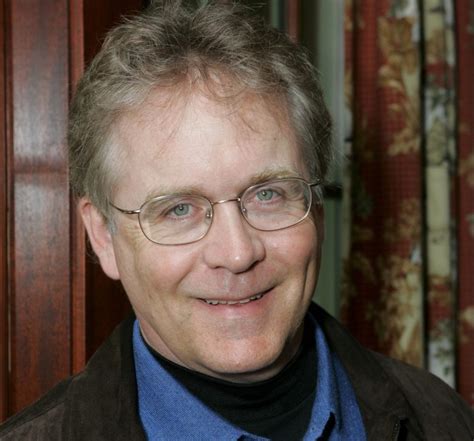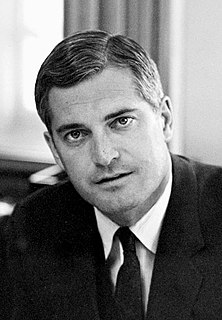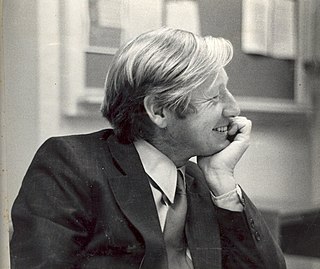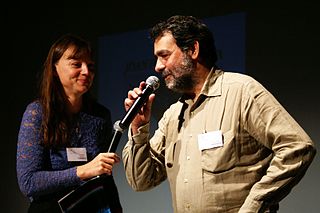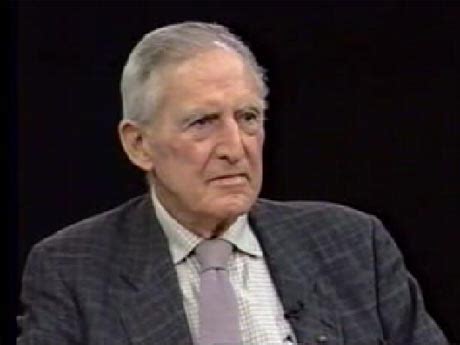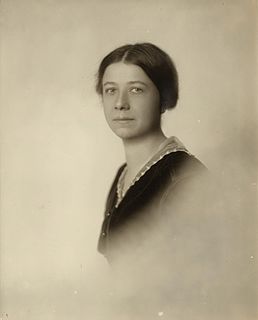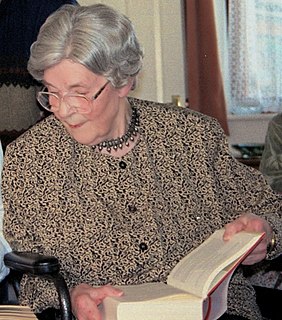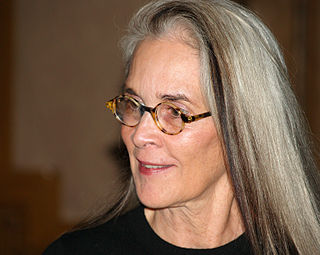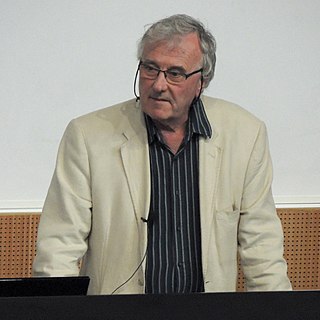Top 1200 Nineteenth Century Quotes & Sayings - Page 5
Explore popular Nineteenth Century quotes.
Last updated on December 22, 2024.
The innocence of those who grind the faces of the poor, but refrain from pinching the bottoms of their neighbour's wives! The innocence of Ford, the innocence of Rockefeller! The nineteenth century was the Age of Innocence--that sort of innocence. With the result that we're now almost ready to say that a man is seldom more innocently employed than when making love.
For instance, the notion of non-penal substitution. This idea, found in the work of the nineteenth century Scottish Reformed theologian John McLeod Campbell and based upon his reading of the letter to the Hebrews in particular, is that Christ offers up his life and death as a penitential act on our behalf, rather than as a punishment in our stead.
Nineteenth- and early-twentieth-century exponents of prefabrication were certain it would supplant age-old traditions of individualized design and handcrafted construction. The building art would be revolutionized by freeing designers and construction workers from repetitive tasks, and democratized by making high-style architecture more affordable.
When I see that the nineteenth century has crowned the idolatry of Art with the deification of Love, so that every poet is supposed to have pierced to the holy of holies when he has announced that Love is the Supreme, or the Enough, or the All, I feel that Art was safer in the hands of the most fanatical of Cromwell's major generals than it will be if ever it gets into mine.
One of the most persistent fallacies about the Christian Church is that it kept learning alive during the Dark and Middle Ages. What the Church did was to keep learning alive in the monasteries, while preventing the spread of knowledge outside them... Even as late as the beginning of the nineteenth century, however, nine-tenths of Christian Europe was illiterate.
No one would have believed in the last years of the nineteenth century that this world was being watched keenly and closely by intelligences greater than man's and yet as mortal as his own; that as men busied themselves about their various concerns they were scrutinised and studied, perhaps almost as narrowly as a man with a microscope might scrutinise the transient creatures that swarm and multiply in a drop of water.
You have read and heard that communist theory-the science of communism created in the main by Marx, this doctrine of Marxism-has ceased to be the work of a single socialist of the nineteenth century, even though he was a genius, and that it has become the doctrine of millions and tens of millions of proletarians all over the world, who are applying it in their struggle against capitalism.
In the nineteenth century, in part because a ton of American men moved west, in part because of the Civil War, and in part because of trepidation about marriage, which was then a very confining institution, there was a big population of women - mostly middle-class white women on the East Coast - who didn't marry.
Plenty of the women who were single in the nineteenth century wrote about their desire to evade marriage. Marriage was scary in a lot of ways. It often involved having a lot of kids, losing your autonomy, being in service to a husband and children who were often born at an unremitting pace without the benefit of modern medicine.
Tolstoy didn't know about steampunk or cyborgs, but he did know about the nightmarishness of steam power, unruly machines, and the creepy half-human status of the Russian peasant classes. In 'Anna Karenina,' nineteenth-century life itself is a relentless, relentlessly modern machine, flattening those who oppose it.
I think that Indian writing in English is a really peculiar beast. I can't think of any literature - perhaps Russian literature in the nineteenth century comes close - so exclusively produced by and closely identified with a tiny but powerful ruling elite, the upper-caste, Anglophone upper middle class, and dependent for so long on book buyers and readers elsewhere.
In the 20th century, we had a century where at the beginning of the century, most of the world was agricultural and industry was very primitive. At the end of that century, we had men in orbit, we had been to the moon, we had people with cell phones and colour televisions and the Internet and amazing medical technology of all kinds.
Current conflicts and guilt about being a woman who is a mother and a person in her own right are a socially defined malaise, notan individual problem.... The conflict is not between being a mother and having a career; it is between nineteenth-century ideas about children and today's ideas about women.
The whole mythological side of 'Twin Peaks' was really down to me, and I've always known about the Theosophical writers and that whole group around the Order of the Golden Dawn in the late nineteenth, early twentieth century - W. B. Yeats, Madame Blavatsky, and a woman called Alice Bailey, a very interesting writer.
Hyper-selectionism has been with us for a long time in various guises; for it represents the late nineteenth century's scientific version of the myth of natural harmony all is for the best in the best of all possible worlds (all structures well designed for a definite purpose in this case). It is, indeed, the vision of foolish Dr. Pangloss, so vividly satirized by Voltaire in Candide the world is not necessarily good, but it is the best we could possibly have.
I conceive that the leading characteristic of the nineteenth century has been the rapid growth of the scientific spirit, the consequent application of scientific methods of investigation to all the problems with which the human mind is occupied, and the correlative rejection of traditional beliefs which have proved their incompetence to bear such investigation.
I use throughout the term 'liberal' in the original, nineteenth-century sense in which it is still current in Britain. In current American usage it often means very nearly the opposite of this. It has been part of the camouflage of leftish movements in this country, helped by muddleheadedness of many who really believe in liberty, that 'liberal' has come to mean the advocacy of almost every kind of government control.
In the end, of course, all novelists will be judged by their novels, but let's not forget that we will also need new ways of assessing the latter. There are people who will continue to write nineteenth-century novels in the early twenty-first, and even win major prizes for them, but that's not very interesting, intellectually or emotionally.
Photography mirrored the [nineteenth century] will towards rigor, towards defining details, the need for miniscule description, the long-distance optics, for technology at the service of truth, for concepts of credibility, of objectivity, the need to archive, for the consolidation of institutions like the museum, in short, towards a need to control memory.
In the later nineteenth century, the tops of skyscrapers often took the shape of domes, surmounted by jaunty gilded lanterns; later came ziggurats, mausoleums, Alexandrian lighthouses, miniature Parthenons. These charming follies contained neither royal corpses nor effigies of gods and goddesses; rather they contained large wooden tanks filled with water.
Christian Science has always appealed to the middle-classes and the upper middle classes. In part, this is because it requires a certain amount of education to study 'Science and Health' to the degree that Christian scientists do. It's not an easy book to read! It's 700 pages, and it's written in a nineteenth-century manner and diction.
If anything qualifies as an irony of history it would be this: that Marx and Engels throughout the nineteenth century wrote about America the United States as the great country of the future, of freedom and equality and a good life for the working man, and a country of revolution and emancipation, and of Russia as the great country of despotism, backwardness, savagery and superstition.
I would like to remind you that both assimilation and integration apply to the working classes in the nineteenth century, at least in Britain and also Germany. Like most outsider groups compared with the establishment, the working classes were treated more or less with the same kind of stigmatization as immigrant groups are treated today.
A man who has once looked with the archaeological eye will never see quite normally. He will be wounded by what other men call trifles. It is possible to refine the sense of time until an old shoe in the bunch grass or a pile of nineteenth century beer bottles in an abandoned mining town tolls in one's head like a hall clock.
The body's habituation to walking as normal stems from the good olddays. It was the bourgeois form of locomotion: physicaldemythologization, free of the spell of hieratic pacing, rooflesswandering, breathless flight. Human dignity insisted on the right towalk, a rhythm not extorted from the body by command or terror. Thewalk, the stroll, were private ways of passing time, the heritage ofthe feudal promenade in the nineteenth century.
American statesmen might like some Europeans more than others and even detect quaint resemblances to their own outlook; but they no more committed themselves to a particular group or country than a nineteenth-century missionary committed himself to the African tribe in which he happened to find himself.
Despite the modern dogma to the effect that women were a subject sex until the nineteenth century 'emancipated' them from history, women in history had demonstrated strong wills and purposes, had made assertions, and had directed or influenced all human destiny, including their own, since human life began.
The invention of photography has dealt a mortal blow to the old modes of expression, in painting as well as in poetry, where automatic writing, which appeared at the end of the nineteenth century, is a true photography of thought. Since a blind instrument now assured artists of achieving the aim they had set themselves up to that time, they now aspired, not without recklessness, to break with the imitation of appearances.
The Marxist doctrine is omnipotent because it is true. It is comprehensive and harmonious, and provides men with an integral world outlook irreconcilable with any form of superstition, reaction, or defence of bourgeois oppression. It is the legitimate successor to the best that man produced in the nineteenth century, as represented by German philosophy, English political economy and French socialism.
'Calcutta is a pot of honey' means that in the first half of the nineteenth century, before the society became truly Victorian in feeling and tone, Bengal was a place to make money. The governor-generals returned to England rich men. It was a bountiful, lush, prosperous, easy place to make a fortune - in coal, in jute, and particularly cloth.
The United States still thinks that Mexico is a nineteenth century industrial society. It isn't that any longer, it has to adapt to a new reality. But we have a grave responsibility in Mexico, which is to give work to our own people. As long as we have a system that denies work to 50 percent of the population, you'll have immigrants coming to the United States.
It's strange that in an age when we pride ourselves on our independence of thought we meekly submit without further question to the declaration of a clearly unbalanced nineteenth century philosopher that God is dead! That's cheeky, of course - and one rarely comes away from reading Nietzsche without learning something new and significant. He's certainly FAR more unsettling for faith than any contemporary atheist I know of.
The acceptability of birth control has always depended on a morality that separates sex from reproduction. In the nineteenth century, when the birth control movement began, such a separation was widely considered immoral. The eventual widespread public acceptance of birth control required a major reorientation of sexual values.
The international institutions go around the world preaching liberalization, and the developing countries see that means open up your markets to our commodities, but we aren't going to open our markets to your commodities. In the nineteenth century, they used gunboats. Now they use economic weapons and arm-twisting.
The nineteenth century, utilitarian throughout, set up a utilitarian interpretation of the phenomenon of life which has come down to us and may still be considered as the commonplace of everyday thinking. ... An innate blindness seems to have closed the eyes of this epoch to all but those facts which show life as a phenomenon of utility
Only the bad artists of the nineteenth century were frightened by the invention of photography; the good ones all welcomed it and used it. Degas liked it not only because it provided an accurate record, but because the snapshot showed him a means of escape from the classical rules of design. Through it he learnt to make a composition without the use of formal symmetry.
He[Napoleon] had destroyed only one thing: the Jacobin Revolution, the dream of equality, liberty and fraternity, and of the people rising in its majesty to shake off oppression. It was a more powerful myth than his, for after his fall it was this, and not his memory, which inspired the revolutions of the nineteenth century, even in his own country.
Did the nineteenth-century novelists create more generously than we do now? In a general reading of contemporary work, do you see a lot of new and different characters, or is it the same character who is a stand-in for the writer? And it's interesting enough, but it's a weakness I think. We are much more self-revealing and less able to produce new people over and over again.
The great proliferation of museums in the nineteenth century was a product of the marriage of the exhibition as a way of awakening intelligent interest in the visitor with the growth of collections that was associated with empire and middle-class affluence. Attendance at museums was as much associated with moral improvement as with explanation of the human or natural world.
If the twentieth century is to be better than the nineteenth, it will be because there are among us men who walk in Priestley's footsteps....To all eternity, the sum of truth and right will have been increased by their means; to all eternity, falsehoods and injustice will be the weaker because they have lived.
Decades from now, people will look back and wonder how societies could have acquiesced in a sex slave trade in the twenty-first century that is... bigger than the transatlantic slave trade was in the nineteenth. They will be perplexed that we shrugged as a lack of investment in maternal health caused half a million women to perish in childbirth each year.
In all, his outfit required nearly two thousand man-years of research and development, eight barrels of oil, and sixteen patent and trademark infringement lawsuits. All so he could possess casual style. A style that, in logistical requirements, was comparable to fielding a nineteenth-century military brigade. But he looked good. Casual.
Up until the middle of the nineteenth century, men of science were all believers. Most of the great early English naturalists were also ministers; they were the only ones who had education and leisure for such pursuits. Darwin himself almost became a minister. God's power was always thought to be most easily and obviously revealed in the majestic works of nature.


















